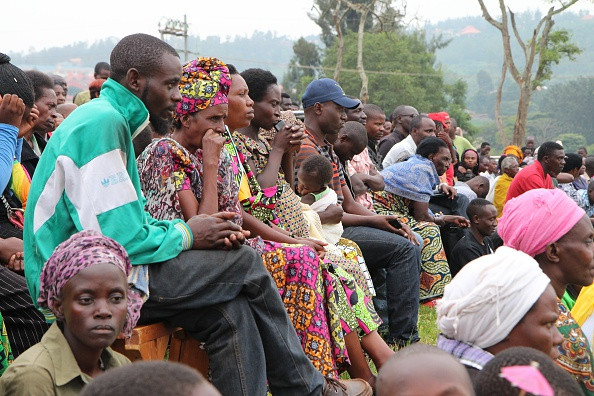Paul Kagame third term: Rwandans to decide on constitutional changes

Thousands of Rwandans living abroad are heading to the polls to vote on proposed constitutional amendments which would allow President Paul Kagame to run for a third term. Rwandans living in their motherland will vote on 18 December with results expected earlier next week.
The referendum was scheduled earlier this year after the parliament backed a proposal to amend article 101 and allow Kagame to run in the 2017 election. Kagame has been president of Rwanda since 2001 and, at present, is bound by the constitution to step down after serving two consecutive seven-year terms.
However, some 3.7 million Rwandans are believed to have signed a petition calling for a third term for Kagame. Kagame – seen by many as the man who stopped the genocide that caused the death of at least 800,000 Tutsis and moderate Hutus in 1994 – said he will make a decision on the future of his political career after the referendum.
Should voters approve the constitutional changes, Kagame could be re-elected in 2017 and stay in power for two subsequent five-year terms under the terms of the amendment, potentially until 2034.
Voting on #Referendum in Ethiopia started at 7am & continues several casting their vote #RwandansDecide #Rwanda pic.twitter.com/qa7NZZWbfH
— Rwanda Embassy Addis (@ambaddis) December 17, 2015Gd morning! #Referendum Vote in #Stockholm started @RwandaElections @RwandaTimes @RwandaEmbassySE #RwandansDecide pic.twitter.com/KvAHLngLEw
— C. Nkulikiyinka (@CNkulikiyinka) December 17, 2015Critics and supporters of third term
Rwanda has been criticised by some western countries – including the US, its biggest foreign aid donor – for its attempt to extend presidential terms. The country's opposition party, Rwanda's opposition Democratic Green Party (DGPR), said it opposes the amendments.
Earlier this year, the party filed a lawsuit demanding Rwanda's Supreme Court halt any amendment, arguing the move is anti democratic. The party also pointed out that existing Article 193 – concerning amendments of the constitution – does not allow the number of terms to be changed, but only their lengths. The court, however, backed the parliament's proposal to amend the constitution.
Kagame's supporters say he should remain in power after he restored the country's crippled economy and has lifted thousands out of extreme poverty since the 1994 genocide. The government also argued that as millions of Rwandans called for Kagame's third term, a constitutional change would be the result of the population's will.
Phil Clark, reader in international politics at Soas University, told IBTimes UK that, although the petition was "heavily orchestrated by the government", Rwandans are now experiencing social and economic stability. For these reasons, they would back a third-term bid.
© Copyright IBTimes 2025. All rights reserved.






















